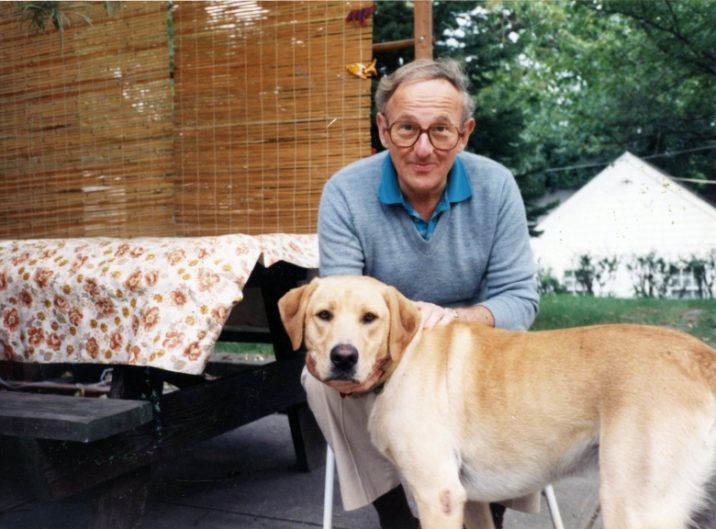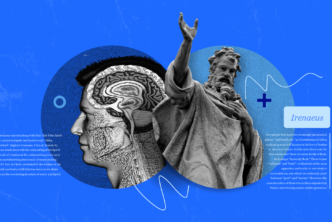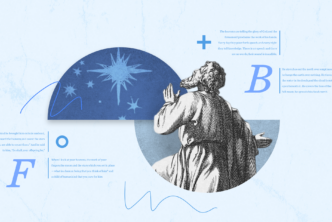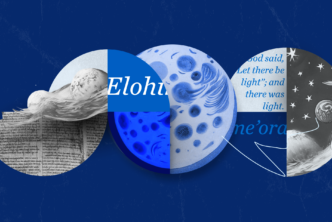A few weeks ago, during the recent global heat wave, I was walking the streets of Helsinki chatting with a good friend when he said something that caused me to forget the sweat dripping down my spine and forehead, soaking my blue dress shirt and stinging my eyes.
“So, Neusner’s essay ends mid-sentence, no full-stop, just a blank half a page. And this was in a volume he edited himself, published by _____!”
I was aghast. Jacob Neusner, the most prolific man in history with nearly 1,000 published works to his name, had made a major editing error that went unchecked. Could this be possible? That in his hundreds of books there is an essay which doesn’t end? How could he do that?
But then again, I should be the last one to criticize. My published works total 0.5% of his, and I can’t even find the time to go swimming every day (yes, Neusner did that too).
Rather than be critical, I suggest we treat this as a stroke of genius by the man. In this particular essay, there is a thought that has trailed off, a gem of insight that will never be recovered. Neusner has left us hanging, wondering, pondering, and guessing. (And no, I refuse to reveal the essay in question; you can try to find it yourself here).
Yet since Helsinki, I have been plagued by questions:
- What is it he wanted to say? Could the conclusion to his argument have turned the tide of Jewish studies?
- What was it that distracted him, and was it worth it? Was this overlooked edit the result of a time of intimate play and laughter with his wife and children? Did his dog interrupt him for a needed walk? (Should I be distracted more?)
- Does one overlooked essay even matter when one has written nearly 1,000 books?
The answers to these questions are beyond us, but I appreciate my friend bringing up the story. Thinking about Jacob Neusner and his incalculable contributions to Jewish studies has got me thinking about my own efforts, minuscule in comparison, in the furtherance of biblical scholarship.
Neusner was one of the great scholars, and it was because he made errors such as this one. The unfinished essay signals not an end, nor a beginning, but a progression of intellectual rigour made manifest with the audible clicking of the keys of his keyboard, a sound that his own children remember with affection.
The beginning of Neusner’s greatness as a scholar occurred in his mind, with the pioneering ideas and critiques that emerged in the course of his reading of original texts and other scholars’ work. Such thinking was immersive.
The progression of Neusner’s greatness was in his immense capacity for concentration on the task of writing down those ideas day in and day out, every morning and often into the afternoon, from his desk at home. Such discipline was productive.
And the end of Neusner’s greatness has yet to come, for his ideas generated a groundswell of change in the study of ancient Judaism that rumbles onwards with renewed energy even today. Such recasting was courageous.
If you don’t yet know Jacob Neusner’s work, and you are a biblical scholar in any sense or at any stage, you must familiarize yourself with this great thinker.
Indeed, reading his work in the course of my own research has made me a better scholar. Although he may have made a few editing errors in the course of his long and prolific career, the fact that he made such a career for himself is a testament to his grit, his genius, and his industry in writing down for posterity ideas.
Mistakes are what made Neusner great. They can make any scholar great. Although faults, errors, and mis-edits attend the work of research and writing, Neusner was yet not afraid to write. And write he did.
The Jacob Neusner Jewish Studies Bundle is almost fully funded for production on the Logos digital library. You can take advantage now of exceptionally low pre-pub pricing if you pre-order this 99-volume resource bundle for $399.99. That is 32% of the full digital price, and an amazing 87% savings compared to purchasing all 99 volumes in print.
Help get the Jacob Neusner Jewish Studies Bundle funded, and then begin your own journey into the massive corpus of works by this renowned scholar. May he inspire you to write without fear, and thereby achieve greatness in the diligent composition of ideas.






